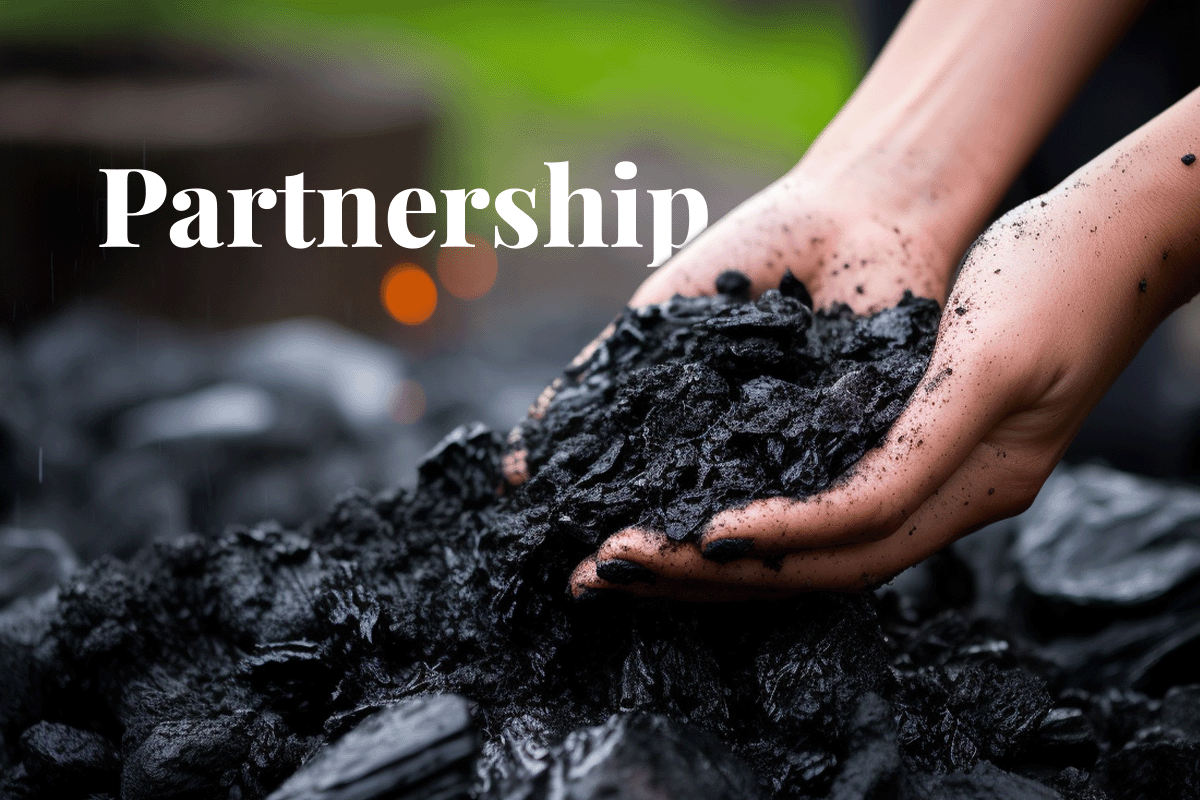On the road to achieving net zero, Microsoft has embarked on a strategic partnership aimed at acquiring carbon removal credits from the groundbreaking Waverly Biochar project, nestled in the heart of Waverly, Virginia. This pioneering endeavour promises to redefine Microsoft’s journey towards a net-zero future.
 Close-up of a woman holding a handful of biochar in her hands. (AI generated image.)
Close-up of a woman holding a handful of biochar in her hands. (AI generated image.)
At its core, the Waverly Biochar project, Spearheaded by Restoration Bioproducts, involves the construction of a state-of-the-art biochar production facility strategically located within the premises of a wood pellet manufacturer. Biochar, a condensed form of biological charcoal, is meticulously crafted by subjecting organic feedstocks such as wood, peanut shells, manure, and crop waste to a process called pyrolysis. This process occurs in an environment with minimal or no oxygen, resulting in the creation of an exceptionally stable form of carbon that can effectively sequester carbon emissions for centuries. This eco-friendly innovation is increasingly recognised for its immense value in carbon sequestration, earning it a pivotal role in the efforts to reach net zero.
Read more: Introducing biochar: a new innovative carbon storage solution
The Waverly Biochar project is expected to deliver remarkable results. It is projected to generate up to 10,000 tonnes of carbon dioxide removal credits annually. These credits will be pivotal in supporting Microsoft's ambitious carbon-neutral target, further solidifying its commitment to sustainability and environmental stewardship.
The potential impact of biochar is substantial. According to Project Drawdown, a renowned environmental research initiative, biochar has the potential to sequester an impressive 1.36–3.00 gigatonnes of carbon emissions by 2050. To put this into perspective, this figure is equivalent to offsetting between two and four and a half years' worth of Canada's carbon emissions, based on data from 2021.
Read more: Turning waste into opportunity: The feasibility stage of our biochar project
Microsoft’s endeavour shows that incorporating biochar into agriculture and land management can lead to a more sustainable future. Through biochar and other nature-based solutions, we can make a significant impact on the environment, biodiversity, and society.
At DGB Group, we're passionate about restoring nature through nature-based solutions, including reforestation, afforestation, biodiversity restoration, and land revitalisation. Our diverse solutions empower businesses, investors, and individuals to actively invest in and preserve nature transparently. Together, let's form a harmonious bond with nature, nurturing and protecting our environment.
Learn more about making a difference for the planet through carbon financing

